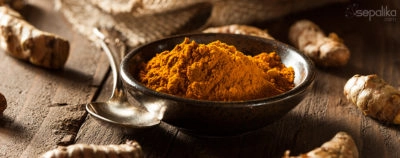PCOS test is based on the Rotterdam criteria for diagnosing PCOS.

Living Well
Inflammation can be reduced through the right nutrition. Changes to diet and lifestyle, are essential first steps in feeling better and getting healthy. However, sometimes, this may not be enough.
So supplementation is often an important add-on for those of us that are struggling with symptoms. They ensure we’re getting what we need to function optimally.
A 2015 study showed that ginger reduces allergic fight inflammation. The nice thing about this warming spice is that you can not only take it in supplement form, but cook with it whenever possible too.
This is another spice that’s extremely powerful in lowering inflammation, and one you can cook with. You’ll want to, once you learn how powerful it is in lowering fight inflammation. A 2014 study revealed that natural compounds isolated from turmeric root, “significantly inhibited the production of inflammatory cytokines.” Study authors labeled it as anti-inflammatory and anti-hyperglycemic (high blood sugar), meaning these turmeric-derived isolates protected against diabetes by lowering insulin and glucose.
There’s a reason that wild fish and seafood form a basis of the infamous Mediterranean diet, and why fish consumption is often recommended for those with depression: omega 3s are amazing inflammation fighters. The omega-3 fatty acids EPA and DHA have anti-inflammatory properties, and so may be helpful in the management of inflammatory and autoimmune disorders like multiple sclerosis, migraines, arthritis, Crohn’s disease, coronary heart disease, depression, and others. Study authors of a 2002 paper wrote,
“Many of the placebo-controlled trials of fish oil in chronic inflammatory diseases reveal significant benefit, including decreased disease activity and a lowered use of anti-inflammatory drugs.”
Magnesium’s role can be seen in a multitude of disease states, including diabetes, heart disease, migraines, various autoimmune diseases…the list goes on. Magnesium status goes hand in hand with inflammation in the body—inflammation depletes magnesium, so those with chronic low-grade inflammation are often low in this important mineral, unless they supplement regularly. A 2014 study put it quite clearly: “Subclinical magnesium deficiency caused by low dietary intake often occurring in the population is a predisposing factor for chronic inflammatory stress that is conducive for chronic disease. Magnesium deficiency should be considered a nutrient of significant concern for health and well-being.”
This wonder vitamin does it all, from collagen rebuilding to helping with stress to bolstering our immunity. Authors of a 2014 study done on ascorbic acid (vitamin C) said that it is “important in all stressful conditions that are linked to inflammatory processes and involve immunity. It has been known for decades that the persistence of an inflammatory stimulus is responsible for the onset of many diseases. Another study of cancer patients taking high-dose IV vitamin C was shown to affect C-reactive protein levels and pro-inflammatory cytokines.
If you take too much, they say, and you will get loose stools and will merely pass the excess out in your urine. The literature supports safe use of Vitamin C up to 3grams a day.
Editor’s Note: Dose varies from individual to individual and even in that, from whether you are merely taking a maintenance dose or if you are fighting disease. At sepalika.com, we support the approach of Andrew Saul, who has taken enormous troubles to compile the work of medical giants like Dr.Robert Cathcart into a practical guide for high-dosing with Vitamin C. It’s available free here.
So are you ready to kick inflammation to the curb? We hope this article has helped to prepare you in the fight against chronic, low-grade inflammation. Using a combination of the right foods, lifestyle changes, and supplements, you can’t go wrong!
Know more about our program: Bounce Back from PCOD, Naturally